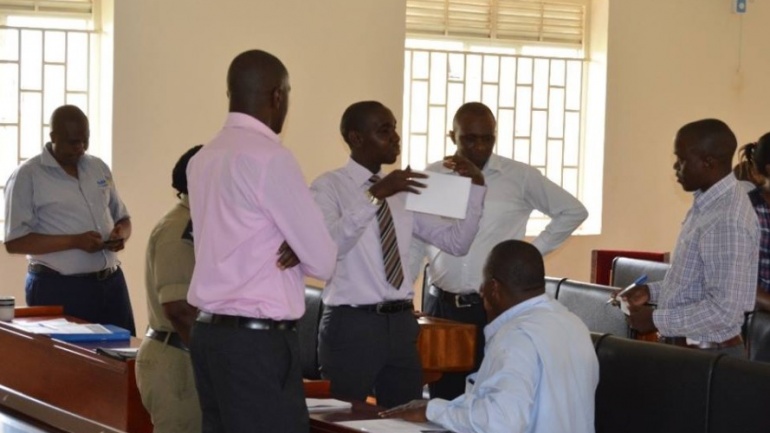Child Rights Baseline Survey
Basing on two major factors namely: the plight of children in Bukomansimbi district and their work experience in children rights advocacy, RACOBAO a local
NGO in Rakai with support from Kindernothilfe is desirous of extending its support to address Children rights abuses in Bukomansimbi. To inform its
programming, RACOBAO contracted the services of Centre for Policy Research and Capacity Enhancement [CPRCE] to investigate the magnitude of children rights
abuses in Bukomansimbi district exploring deeply into the root causes of the rampant child rights abuses in Butenga and Kibinge sub-counties. With the results
from this baseline study, RACOBAO intends to develop a multi-year program that will respond to children rights
abuses identified by the study based on the specific recommendations generated.
The study covered two sub-counties of Bukomansimbi district namely: Butenga and Kibinge.A descriptive design was adopted in accomplishing the assignment with
the aim of generating descriptive data on the phenomenon investigated and to allow for capturing of the voices of
respondents to add value to statistical data. A sample size of 400 respondents was reached composed of children, parents/care givers, district leadership,
RACOBAO staff, CSO officials and local community in general. The main methods deployed for data collection and analysis were: review of secondary data, Key
Informant Interviews, Observation, FGDs, Survey/use of questionnaires and consultative meetings.
The key findings resulting from the baseline survey indicate that child rights violations in Bukomansimbi district are relatively high [62%] meaning that six
[6] out of every ten [10] children experience some form of violation of rights. Child neglect and mistreatment by step parents/ caregivers in terms of
denying children food, subjecting children to all forms of labor, battering, not taking children to school, failure to treat a step child when sick] top
the list of forms of child rights violations in Butenga and Kibinge sub-counties of Bukomansimbi District. The study alsoreveals that, children’s own parents
[33.3%] and step parents [32.6%] are the main perpetrators of child abuse accounting for 65.9% of cases of violation of children rights. Children in the age
bracket 11 – 15 were the most vulnerable to abuse for the reason that they are aggressive and uncontrollable. They can work in the gardens and offer labor in all forms. They can take care of other
young ones and yet can also be sexually manipulated. They are denied play as they are introduced to taking on family/household’s roles. Poverty, broken
families and alcoholism stood as the main drivers of violation of children’s rights accounting for 64% of responses on factors for violation of children’s
rights. Poverty undermines parent’s ability to provide basic needs for the family. Children reached by the study, revealed that parents and the Police
[63%] are their main reporting lines in the event that their rights are violated. Despite its importance in resolving family matters the role of Probation
office remains unpopular. The toll-free child helpline “Sauti 116” installed at the district by DREAMS and Ministry of Gender was dysfunctional because of
the district’s inability to pay for internet and airtime subscriptions. Children reached by this study
acknowledged that their reporting lines were effective and that approximately, 76% of their
concerns were addressed/fix/resolved through such reporting lines.
The study recommends mobilization of communities for change. That is, to educate the community (men, women, boys and girls) on children’s rights, roles and
responsibilities of different stakeholders and mobilizing them to keep children free and safe from violence. We also recommend RACOBAO to support adolescent sexual and reproductive health education both for
in and out of school to address gender and power relations that are associated with improved behavioral outcomes, including lowering the rate of HIV
infection. Others include: joint advocacy with other actors to promote children’s rights, economic empowerment of households and strengthening child
protection systems.Child Rights Baseline Survey



